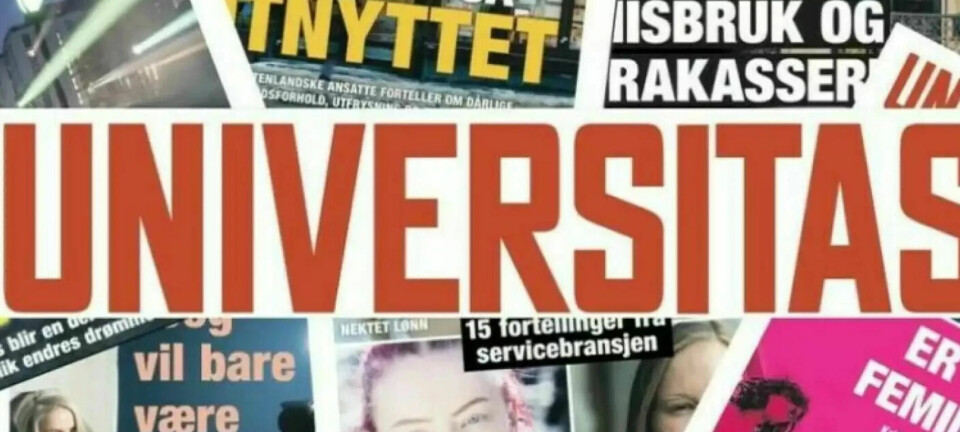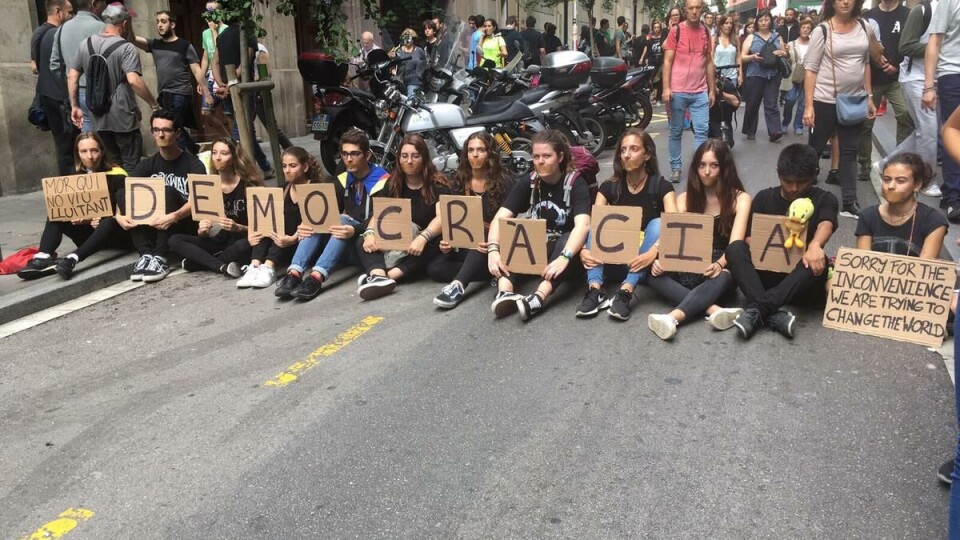
Catalan students on strike: «The violence can’t be justified»
Thousands of students took to the streets last week to protest against the Spanish police’s brutal handling of Catalonia’s controversial referendum.
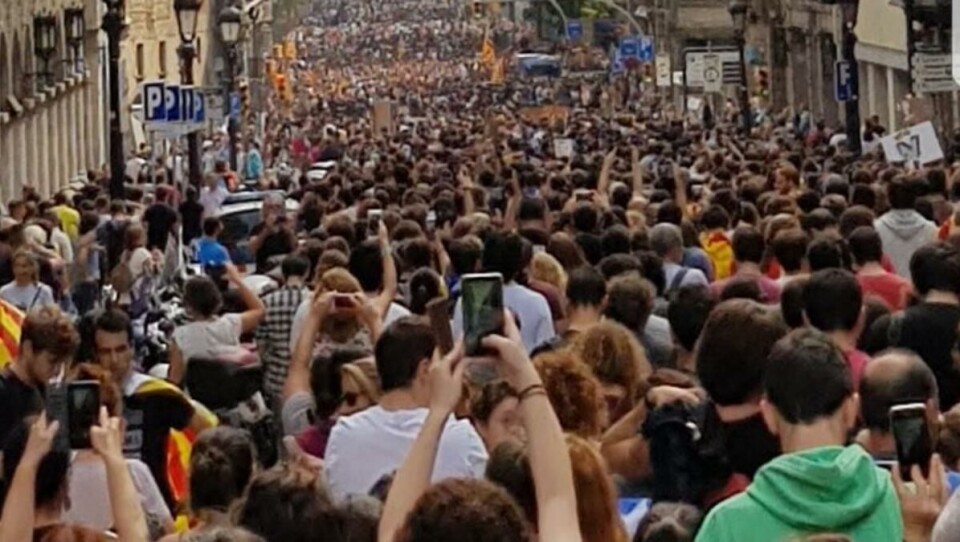
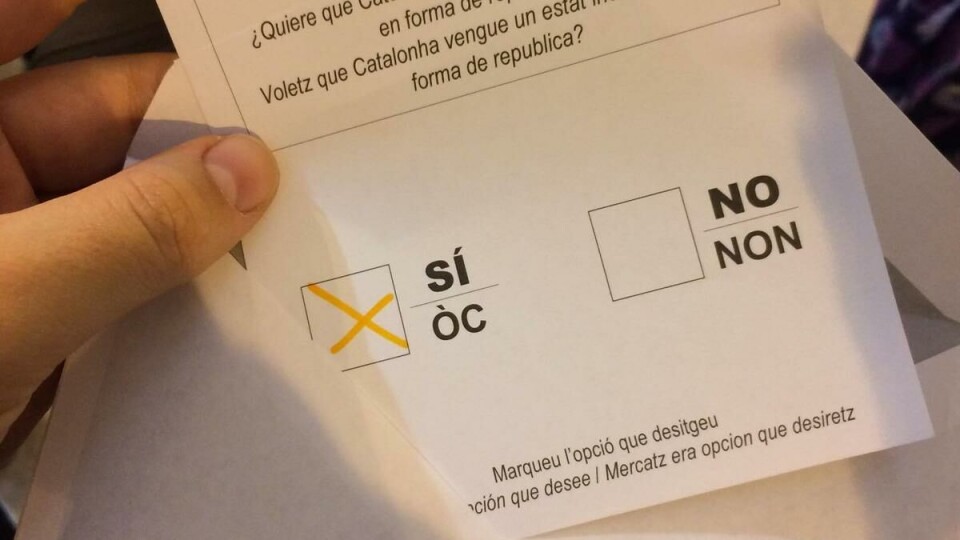
«Universities, schools, supermarkets and restaurants are closed. Even buses and the underground has stopped,» said psychology student Richard Rojals.
Catalonians have been protesting against the national policies brutal handling after the controversial independence referendum.
On the University of Barcelona’s website last week it said that on Tuesday Oct. 3 they would be «stopping all academical activity» and that the employees could decide whether to meet up in the workplace or not. Rojals walked alongside thousands of other students to show their disgust at the violence.
«Right now I'm in a demonstration outside my elementary school to show that violence is not the way to go, and that it was a shame that the Spanish government used national police to stop the referendum,» he said.
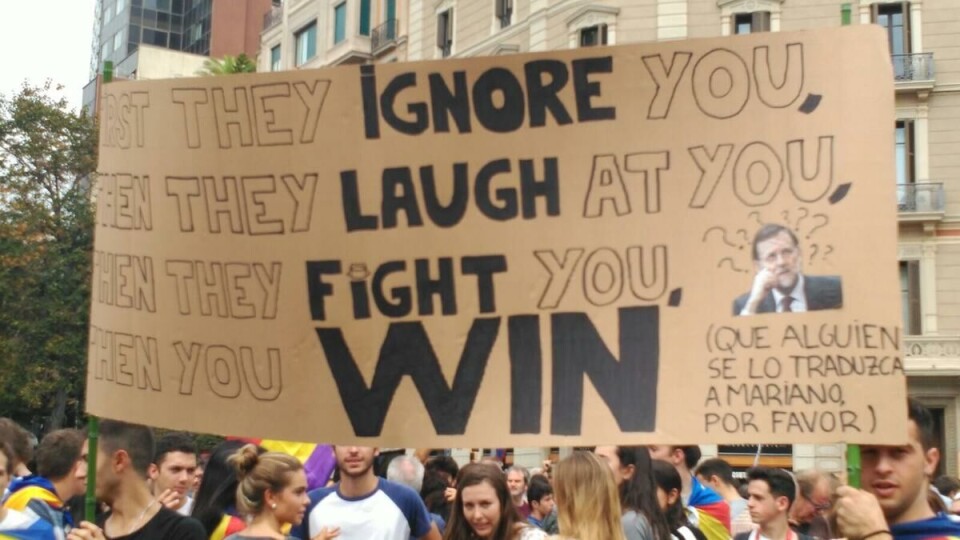
Tensions high
On Sunday the elementary school was used used as a voting station, until the police cracked down. Last week, after election day, around 250 people gathered outside Barcelona’s oldest school. The crowd consisted of students, parents and teachers. Some held ballot boxes from the election.
«I got hit in the face, and then I fell down. The next thing I remember is a friend trying to help me stand upright. The national police took four ballot boxes with around 500 votes,» Rojals said.
In one of Barcelona’s main streets, psychology student Margalida Agnés is protesting. She was also at one of the schools that served as a polling station Sunday morning together with a large group of friends.
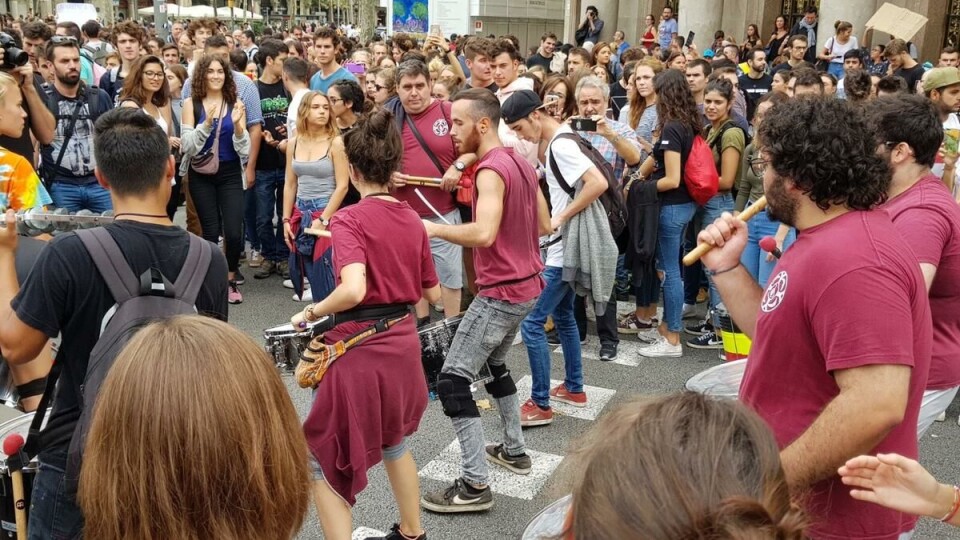
«How the national police acted was frustrating and terrible to see. They handled the situation very badly and were very aggressive. That violence can't be justified,» she said.
Andrea Esteve Pedró has just finished a degree at the University of Barcelona and shares Agnés’ og Rojals’ frustration over the turn the referendum took.
«That the Spanish government has attempted to stop the referendum by the use of violence has only given the Catalonian people a greater reason to vote for independence,» said Pedró.
The Catalonian government has stated that more than 800 civilians were injured in the collision with the police on the election day. Spain’s prime minister Mariano Rajoy has apologized for the violent events which occurred on Sunday, but will not recognize the referendum as being valid.
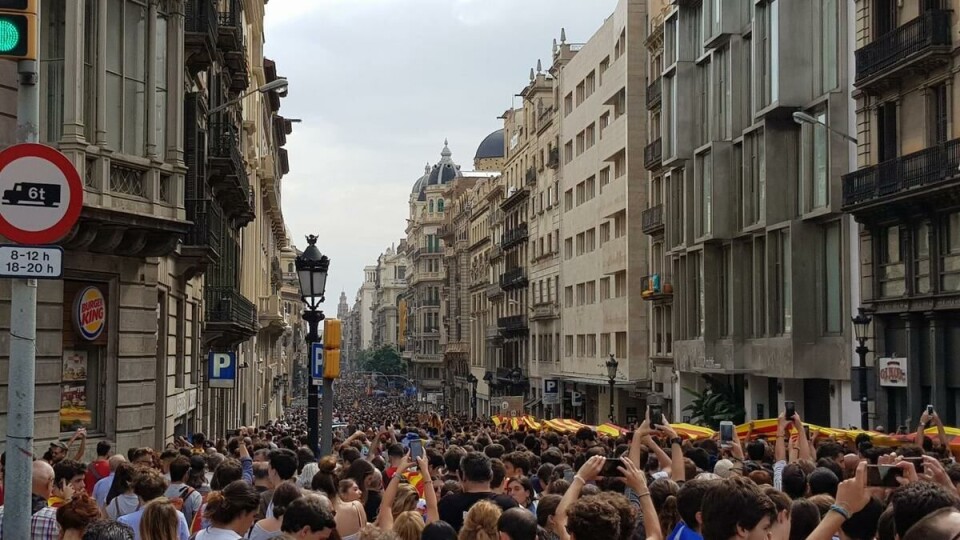
No legitimacy
José María Izquierdo is librarian at the University of Oslo’s library, and teacher in Spanish literature and history at the department of Literature, Area Studies and European Languages. He is critical of the referendum in Catalonia and believes independence in practice is impossible.
«The problem here is not that it was a referendum. It was simulated, and both illegal and undemocratic,» he said, and emphasized that the rebel police’s involvement was «cruel and unnecessary.»
Today we are not talking about independence, we are talking about human rights.
Mireia Sintes, UPC student
Izquierdo says Catalans are trying to find a legitimacy they do not have as a group. He also questioned the figures given by the Catalonians in accordance with the referendum.
«2,3 million Catalans have voted. Who says that? There were no controllers,» said Izquierdo, and added it didn’t surprise him that the result was a yes to independence, as it was nationalists who applied for referendum.
Catalans have the right to decide what they want, but through a legal, democratic and Catalan referendum, he says.
Izquierdo believes it is likely however that the Catalan president will try to declare independence despite the lack of support internationally. He believes the global community has already taken a position on Catalan independence.
«The EU says no, the UN says no and even Trump says no,» said Izquierdo.
«The most important thing is not that you declare independence, but that the rest of the world recognizes it,» he added.
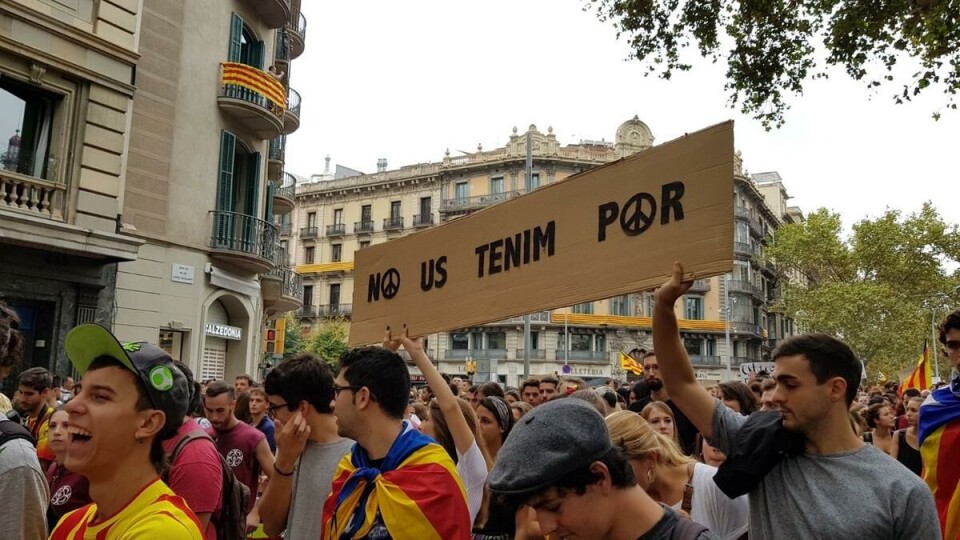
Focus on human rights
Mireia Sintes studies architecture at UPC in Barcelona. She is from Mallorca and therefore cannot vote, but that didn’t keep her at home on election day.
«Sunday October 1, thousands of people defended their local schools where the elections were being held. Many had slept over, so that the police couldn’t close the premises,» she said. «I arrived at my local school at five in the morning. The police did not come here, but we eventually got pictures from other polling stations, and realized that situation was out of control.»
Sintes described a nervous mood on election day, saying many were in the polling stations until the last vote was counted.
After a general strike and demonstrations throughout the Catalan region, she believes the debate has gotten a new dimension.
«Today we are not talking about independence, we are talking about human rights,» she said.
«Like a season finale»
The students Universitas talked to say they are uncertain about what the future will bring. Of the over two million Catalans who voted, 90 percent of the votes are for independence, according to the Catalan authorities themselves. However, they only comprise a minority of the total Catalan population.
«It’s like a season finale in a Netflix-series. Now we are just waiting to see what will happen next season,» said Pedró.










